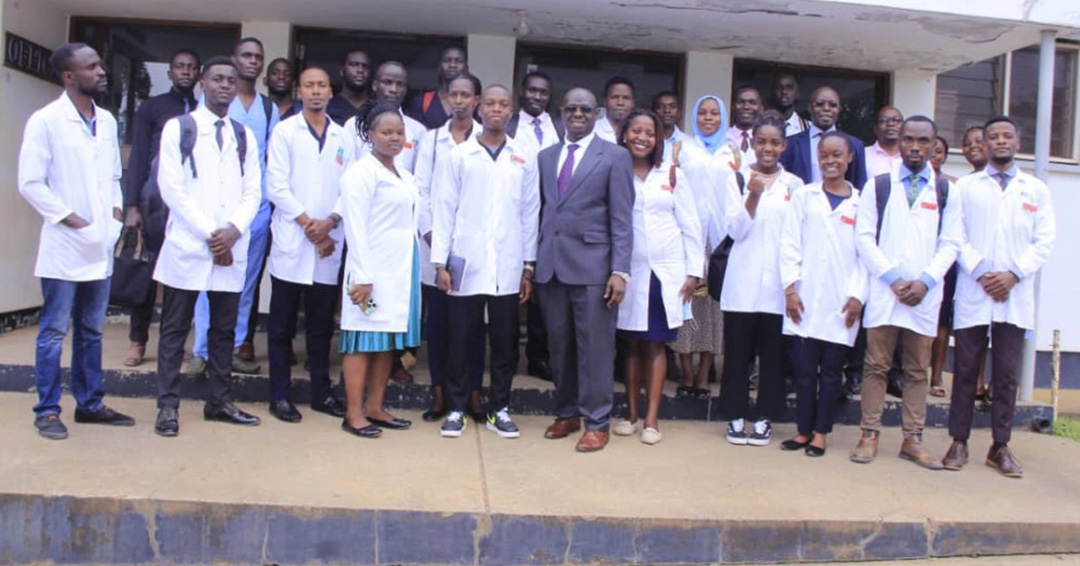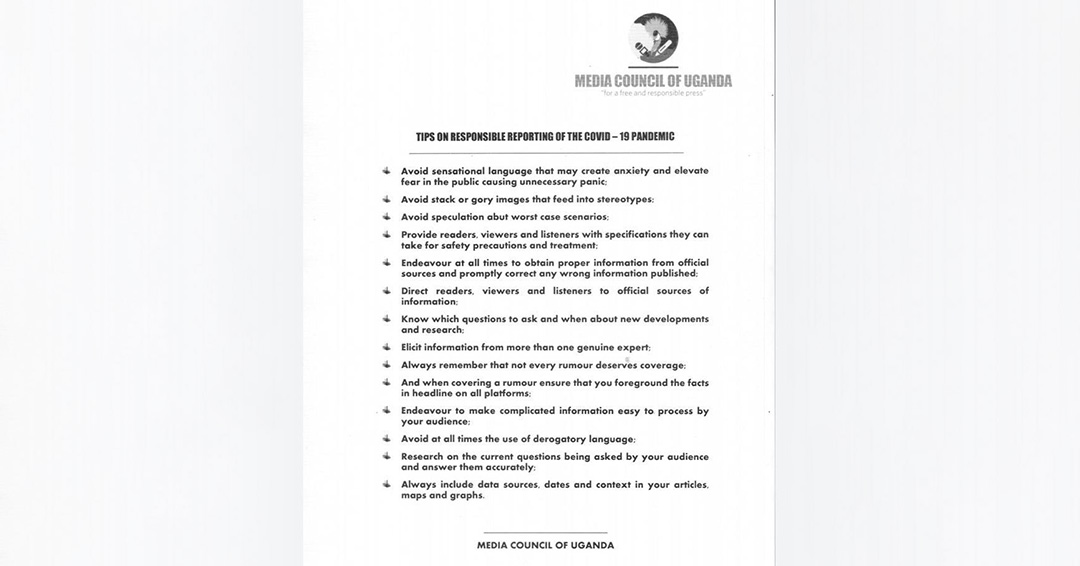
Sep
KIU Teaching Hospital Strengthens Partnership With Kitagata General Hospital
September 5, 2024, 9:40 am
 Administrator
Administrator

KIU, Main Campus - The Media Council of Uganda (MCU) released a series of guidelines to be followed during the 30 days lockdown. Among them, was a warning to avoid speculation about worst case scenarios. This guideline was put in place, to avoid panic among the masses over the COVID-19 pandemic.
The MCU was established by the Press and Journalist Act, Cap 105 of 1995. It regulates the conduct and promotes good ethical standards and discipline of journalists, arbitrates disputes between the public and the media, the media and itself, and the State and the media. It exercises disciplinary control over journalists, editors, and publishers, among other functions.
A statement signed by the Chairman Media Council of Uganda, Paul Ekochu, held that all national and local governments, departments, and agencies, as well as private sector organizations, have been directed to suspend all live coverage of press conferences to avoid congregation which poses a threat amidst the Corona Virus outbreak.
Among other recommendations, is the request to all media houses to provide their personnel with protective gear including face masks, gloves, and sanitizer liquid as they cover the pandemic. This measure is to protect journalists from contracting the virus since they move from place to place gathering news and conducting interviews.
Journalists are also encouraged to conduct one-on-one interviews and keep away from mass conferences as these encourage congregation which eases the spread of the virus.
c��?As such this kind of facilitation will minimize the need for crowded engagement and risk of infections,c⬝ Ekochu said.
In regards to the spread of false information and rumours about the Corona Virus across social media platforms, media houses have been tasked to only receive and distribute official information and content about the pandemic from authorized officers of the Ministry of Health and the World Health Organization so as to avoid misinformation.
Head of Department of Journalism at Kampala International University, Joan Owade, also urged individuals to also take responsibility and verify all content before distributing and posting on social media platforms.
"People are taking advantage of sending any information anyhow. This is against journalistic principles governing news writing and reporting," she said. "Although we appreciate citizen journalism, its effect especially now, is raising more anxiety and fear in the country. Especially those who post unverified content."
Owade further implored people to consider the reason for the story they choose to report about and how the content, when reported, will be beneficial to society.
"How will the content you're sending be of benefit to the recipient? If it's likely to cause more harm than good, then why post it? Fear is the number one killer disease, and unreliable sources have managed to instigate this in the lives of many people," she said.
"Information is knowledge, and knowledge is power. How we work along this needs a lot of sensitivity and guidance from the authoritative voices like the Media Council of Uganda and the government."
Kampala International University,
Box 20000, Ggaba Road, Kansanga, Kampala
+256-760 502660
+256-700 100808